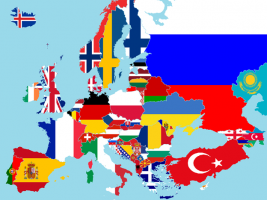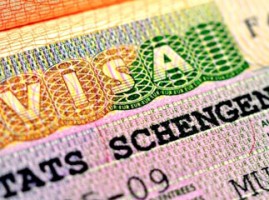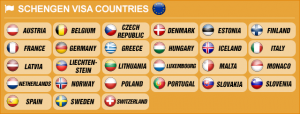Are you going to visit a European country that is part of the Schengen Area for a period of less than 3 months, either as a tourist, student or on business? You will need to file an application to obtain the required European Schengen visa. Schengen visa is the document issued by the appropriate authorities to the interested party for visiting/travelling in and within the Schengen Area. The Schengen Area is comprised of 26 countries that have agreed to allow free movement of their citizens within this area as a single country. The following countries are parties to the Schengen Convention: Austria, Belgium, Czech Republic, Denmark, Estonia, Finland, France, Germany, Greece, Hungary, Iceland, Italy, Latvia, Liechtenstein, Lithuania, Luxembourg, Malta, The Netherlands, Norway, Poland, Portugal, Slovenia, Slovakia, Spain, Sweden, and Switzerland. Tourists should be aware that the United Kingdom, Ireland, Albania, Belarus, Bosnia & Herzegovina, Bulgaria, Croatia, Cyprus, Former Yugoslav Republic of Macedonia, Moldova, Montenegro, Romania, Russia, Serbia and Ukraine are not part of the Schengen area. Tourists should consult the nearest High Commission, Embassy or Consulate of these countries for visa information.
You will need to file an application to obtain the required European Schengen visa. Schengen visa is the document issued by the appropriate authorities to the interested party for visiting/travelling in and within the Schengen Area. The Schengen Area is comprised of 26 countries that have agreed to allow free movement of their citizens within this area as a single country. The following countries are parties to the Schengen Convention: Austria, Belgium, Czech Republic, Denmark, Estonia, Finland, France, Germany, Greece, Hungary, Iceland, Italy, Latvia, Liechtenstein, Lithuania, Luxembourg, Malta, The Netherlands, Norway, Poland, Portugal, Slovenia, Slovakia, Spain, Sweden, and Switzerland. Tourists should be aware that the United Kingdom, Ireland, Albania, Belarus, Bosnia & Herzegovina, Bulgaria, Croatia, Cyprus, Former Yugoslav Republic of Macedonia, Moldova, Montenegro, Romania, Russia, Serbia and Ukraine are not part of the Schengen area. Tourists should consult the nearest High Commission, Embassy or Consulate of these countries for visa information.
Regarding the purpose of the travel, there are several types of a Schengen visa issued by the designated embassy/consulate.
- Uniform Schengen Visas (USV)
The Uniform Schengen Visa stands for a permit of one of the Schengen Area Member Countries to transit or reside in the desired territory for a certain period of time up to the maximum of 90 days every six month period starting from the date of entry. According to the purpose of traveling the Uniform Schengen Visa applies to all of the three categories, “A”, “B” and “C”.
- National Visas
The national visa of “D” category is granted to the certain individuals who are to be studying, working or permanently residing in one of the Schengen countries. The national visa can be of a single entry, granted for the people who are in need of residing in the Schengen country for a certain period of time, or for a sole purpose after which they shall return to their country.
- Limited territorial validity visas (LTV)
This type of visa obtained allows you to travel only in the Schengen State that has issued the visa or in some other cases, in the certain Schengen States specifically mentioned when applying for the visa. Apart from these Schengen countries, this specific visa is invalid to any other Schengen country not specified prior.
 Tourists should remember some points during a Schengen visa execution:
Tourists should remember some points during a Schengen visa execution:
– Check the expiration date on your passport carefully before traveling to Europe. Entry into any of the 26 European countries in the Schengen area for short-term tourism, a business trip, or in transit to a non-Schengen destination, requires that your passport be valid for at least three months beyond your intended date of departure. If your passport does not meet the Schengen requirements, you may be refused boarding by the airline at your point of origin or while transferring planes. You could also be denied entry when you arrive in the Schengen area. For this reason, we recommend that your passport have at least six months’validity remaining whenever you travel abroad.
– When you first cross any external border of the Schengen area and present your passport for entry, an immigration official will determine if you qualify for entry into the Schengen area. You may be denied entry if the officer determines you do not qualify for entry. When moving from one Schengen country to another, you do not need to show your passport until you exit the Schengen area. Ensure your passport is stamped upon entry and exit.
– Some embassies, high commissions and consulates may require applicants to provide biometric identifiers (typically fingerprints and a digital photograph) as part of the visa application process to be stored on the Visa Information System (VIS). Biometric identifiers are not collected from children under the age of 12.
– Finally, the traveller must have travel insurance that covers, for a minimum of €30,000, any expenses incurred as a result of emergency medical treatment or repatriation for health reasons. The proof of the travel insurance must in principle be provided at the end of the procedure, i.e. when the decision to grant the Schengen visa has already been made.
If you are going to travel with some travel agency they will help you with a Schengen visa execution.
Have a good unforgettable trip and tell us about it!

